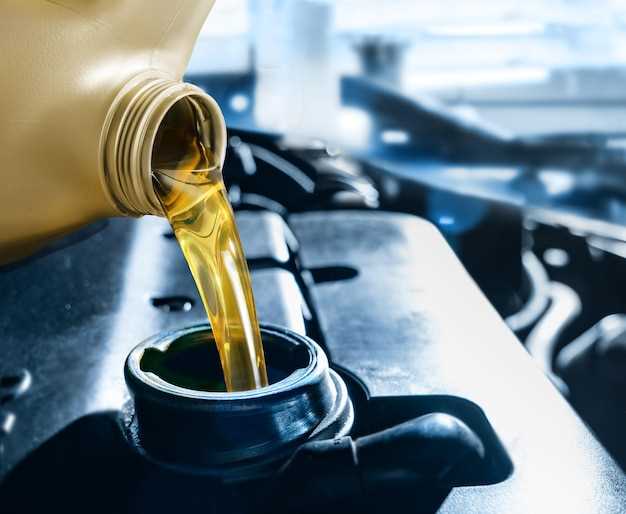
The choice of transmission fluid is crucial for the optimal performance of any vehicle’s gearbox. As technology has advanced, synthetic transmission fluids have emerged as a superior alternative to traditional mineral oils. These advanced fluids are specifically formulated to provide enhanced protection and performance under a variety of driving conditions.
Synthetic transmission fluids offer several significant advantages over conventional oils. One key benefit is their ability to maintain consistent viscosity across a wide range of temperatures. This characteristic ensures that your gearbox operates smoothly and efficiently, whether you’re navigating through extreme heat or frigid conditions. Additionally, these fluids possess excellent thermal stability, reducing the risk of breakdown and oxidation over time.
Furthermore, synthetic oils provide superior lubrication properties, minimizing wear and tear on critical components within the gearbox. By reducing friction and operating temperatures, they contribute to longer service intervals and enhanced overall reliability. This not only results in fewer repairs but also leads to improved fuel efficiency, making synthetic transmission fluids a wise investment for vehicle owners looking to optimize performance.
Enhanced Performance in Extreme Temperature Conditions

Synthetic transmission fluids offer superior performance in extreme temperature conditions compared to conventional oils. These specialized fluids are engineered to withstand both high and low temperatures, ensuring that the gearbox operates efficiently regardless of external climatic influences. In high-temperature scenarios, synthetic oils maintain their viscosity and resist breakdown, preventing sludge formation that could impair transmission function. This thermal stability ensures smooth shifting and prolongs the lifespan of the gearbox.
Conversely, in cold environments, synthetic oils exhibit excellent low-temperature fluidity, allowing for quicker lubrication upon startup. Traditional oils can thicken in cold conditions, leading to delayed engagement and increased wear on components. The unique molecular structure of synthetic transmission fluids allows them to flow freely at low temperatures, providing immediate protection and enhancing responsiveness.
Furthermore, synthetic fluids possess a lower volatility, minimizing evaporation losses during high-temperature operation. This characteristic not only enhances performance but also contributes to maintaining optimal fluid levels, which is crucial for the gearbox’s longevity. Overall, the utilization of synthetic oils significantly improves the reliability and efficiency of transmission systems across a wide range of temperature conditions.
Extended Service Life and Reduced Maintenance Costs

Synthetic transmission fluids offer significant advantages in terms of extended service life for gearboxes. Unlike conventional oils, these synthetic oils are engineered to withstand higher temperatures and resist breakdown, ensuring that the gearbox operates efficiently over longer periods. This stability reduces the frequency of oil changes, which is a major contributor to maintenance costs.
Moreover, the superior lubrication properties of synthetic oils minimize wear and tear on gearbox components. By maintaining the integrity of the gearbox for an extended duration, these fluids not only prolong the lifespan of the equipment but also enhance performance. With reduced friction, the gearbox operates more smoothly, which can lead to decreased energy consumption and, consequently, lower operational costs.
In terms of maintenance, synthetic transmission fluids can lead to significant cost savings. Since these oils require less frequent replacement and generally result in fewer repairs, the overall maintenance expenses decrease. Businesses benefit from reduced downtime, fewer service interruptions, and the potential for increased productivity.
In conclusion, opting for synthetic transmission fluids creates a robust solution for gearbox management, promoting longer service life and lowering maintenance costs, ultimately contributing to a more efficient and economical operation.
Improved Gear Protection and Fuel Efficiency
Synthetic transmission fluids offer superior protection for gearboxes due to their advanced formulation. Unlike conventional oils, synthetic fluids provide enhanced lubrication properties, resulting in reduced friction between the moving parts. This improved lubrication minimizes wear and tear on gears, extending the lifespan of the transmission system.
In addition to protection, synthetic oils contribute to fuel efficiency. The lower friction in the gearbox allows for smoother operation, which translates to less energy wasted during power transfer. Vehicles that utilize synthetic transmission fluids often experience better fuel economy, as the engine does not have to work as hard to overcome resistance.
The thermal stability of synthetic fluids also plays a crucial role. These oils maintain their viscosity across a wide range of temperatures, ensuring consistent performance under various conditions. This stability helps prevent overheating and breakdown of the fluid, which can lead to increased viscosity and potential damage to the gearbox.
Furthermore, synthetic transmission fluids possess excellent shear stability, meaning they retain their protective qualities even under high-stress conditions. This characteristic is essential for maintaining optimal performance in high-performance vehicles or those subjected to heavy loads.
Overall, using synthetic transmission fluids results in enhanced gear protection and improved fuel efficiency, making them a wise choice for anyone looking to maximize the performance and longevity of their transmission system.




